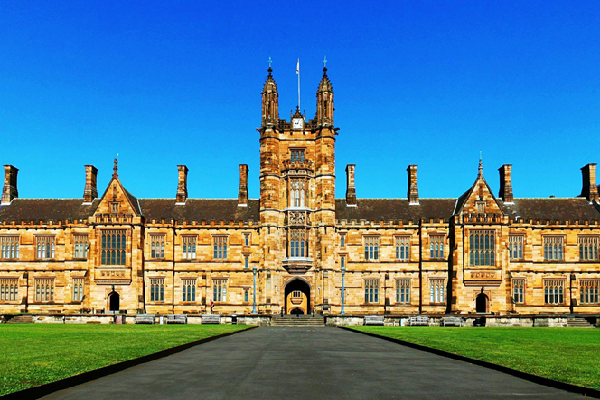University of Sydney, Melanoma Institute Australia renew affiliation agreement
The University of Sydney and Melanoma Institute Australia (MIA) have executed a five-year affiliation agreement, ending 30 November 2027.
The University of Sydney and Melanoma Institute Australia (MIA) have continued their longstanding relationship by executing a five-year affiliation agreement, ending 30 November 2027.
This is a renewal of a previous affiliation which was executed in 2015.
The partnership, in line with the University’s 2032 Strategy, will allow for us to further our world class cancer research, tackle complex challenges and deliver solutions with positive global impact.
Professor Emma Johnston, Deputy Vice-Chancellor (Research), welcomed the announcement:
“The University of Sydney is proud to renew our longstanding affiliation with Melanoma Institute Australia. This renewed affiliation demonstrates our commitment to the strategic goal of tackling complex challenges and delivering solutions with positive global impact.
“Our researchers, Professor Georgina Long and Professor Richard Scolyer, have achieved remarkable success in the field, and I am confident that, with the support of this renewed partnership, they will continue to drive further innovation and discovery in the years to come.”
Professor Robyn Ward, Executive Dean and Pro Vice-Chancellor Medicine and Health, also looks forward to how this renewed partnership wil advance our understanding of melanoma and develop new treatments to benefit patients:
“A diagnosis of metastatic melanoma used to be a death sentence. Thanks to the work of researchers and clinicians from across the world, many people are now cured of melanoma and have a normal life expectancy.
“The University of Sydney was a pioneer in the early days of melanoma research and has continued this work without interruption. Our most recent recruit, a surgeon scientist, A/Professor Alexander van Akkooi is taking important steps towards reducing the side effects of surgical treatments for melanoma. We are very pleased to share, with MIA, the goal of zero deaths from melanoma by 2030.”
This renewed affiliation demonstrates our commitment to the strategic goal of tackling complex challenges and delivering solutions with positive global impact.
Professor Emma Johnston
Our researchers leading global advances in melanoma research and treatment
Guiding MIA’s mission of achieving zero deaths from melanoma are Co-Medical Directors and University of Sydney researchers Professor Georgina Long and Professor Richard Scolyer.
These distinguished researchers were both ranked in the top one percent of their field in the 2022 Clarivate Highly Cited Research List.
Professor Long leads an extensive clinical trials team and laboratory, with a focus on targeted therapies and immuno-oncology in melanoma.
She was appointed as an Officer of the Order of Australia (2020) and has received several awards, including the prestigious Ramaciotti Medal for Biomedical Research (2021) and the Vice-Chancellor’s Award for Excellence Award for Outstanding Research (2021). In November 2022, she was ranked the world’s number one melanoma expert in all fields and disciplines.
Professor Scolyer consults on more than 2000 cases annually which are difficult to diagnose. According to Thomson Reuters ISI Web of Knowledge, he is the highest-ever published scientist in the world in the field of melanoma pathology and he also has the highest H index in this field.
In September 2019, he was ranked as the leading Australian Pathologist in the entire field of pathology by League of Scholars. He is a member of the University’s Charles Perkins Centre.
Current projects
In a world-first coming out of the MIA, an early phase trial of an mRNA personalised cancer vaccine has shown promising results for preventing melanoma recurrence in patients with resected high-risk melanoma (stage III and IV).
The Phase 2 Moderna and Merck trial involved 157 melanoma patients in Australia and the USA whose melanoma had been surgically removed but who were at very high risk of it recurring.
Professor Long, who was involved in the Australian arm of the clinical trial, described the initial results as possibly “the second penicillin moment in cancer treatment”.
“This is the first trial to demonstrate that we can use both the mRNA technology and a personalised approach to cancer to improve outcomes for patients with cancer,” Professor Long said.
“We found when we added a personalised vaccine – so an mRNA very similar to the COVID vaccine technology but based around the patient’s personal melanoma – the chance of recurrence was reduced by 44 percent.
“We now need to confirm results in a larger trial which we are hoping to start early next year.”

